This website uses cookies so that we can provide you with the best user experience possible. Cookie information is stored in your browser and performs functions such as recognising you when you return to our website and helping our team to understand which sections of the website you find most interesting and useful.
Chef’s Table: Asma Khan talks Indian cuisine, her comfort favourites and being a voice for social change through food
By Shivani Dubey | 19 August 2024 | Culture, Food & Drink
Tempus’s Chef’s Table series meets Darjeeling Express owner and Indian fine dining extraordinaire Asma Khan to chat comfort foods, social justice and more
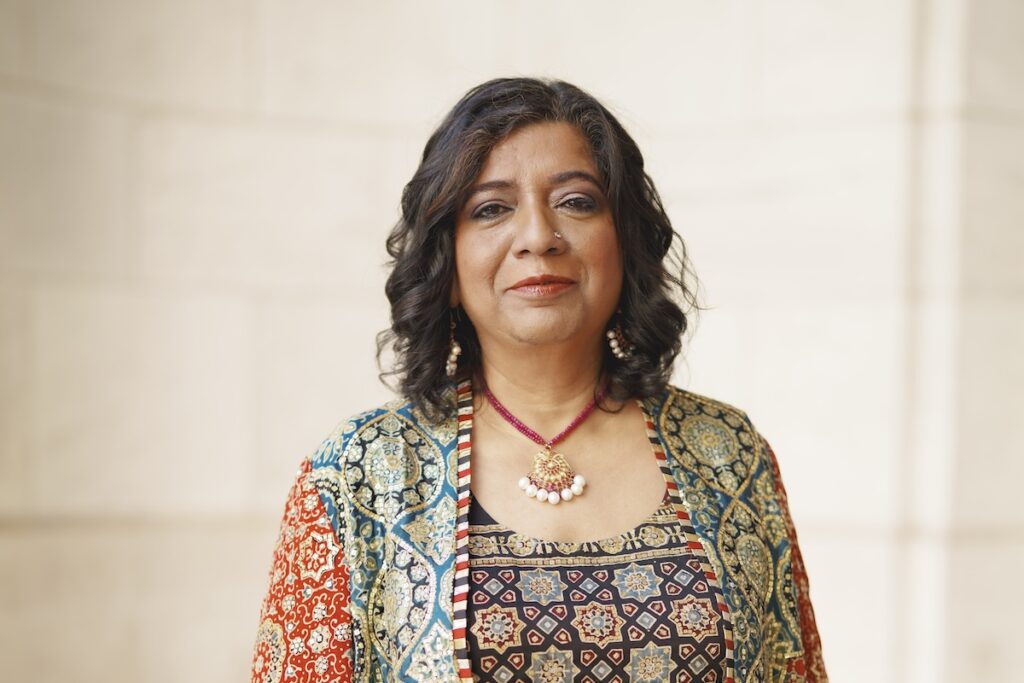 You cannot talk about Indian fine dining in London without mentioning Asma Khan. The renowned chef and restaurateur is almost synonymous with Indian cuisine in London. Her restaurant, Darjeeling Express stands loud and proud at Carnaby Street and is frequented by celebrities and culinary aficionados alike.
You cannot talk about Indian fine dining in London without mentioning Asma Khan. The renowned chef and restaurateur is almost synonymous with Indian cuisine in London. Her restaurant, Darjeeling Express stands loud and proud at Carnaby Street and is frequented by celebrities and culinary aficionados alike.
But that is not what makes Asma Khan so great. Hailing from the Indian city of Kolkata, Asma has dedicated her entire career to becoming a voice for social justice through food. Whether it is advocating for daughters in India through the Second Daughters Fund or opening up her restaurant to aspiring female chefs every Sunday to host supper clubs, Asma has ensured she uses her position of privilege to champion others.
She has been a trailblazer when it comes to elevating the Indian fine dining scene in London and changing the perception of India’s rich culinary history in the west. She has been profiled by Netflix and in 2024, was named one of TIME Magazine’s 100 most influential people.
And that is why, there was truly no better person we could have spoken to for this instalment of our Chef’s Table series. Here, we chat with Asma Khan about Indian cuisine, her upbringing, her comfort foods and why she chooses to use her platform for social change.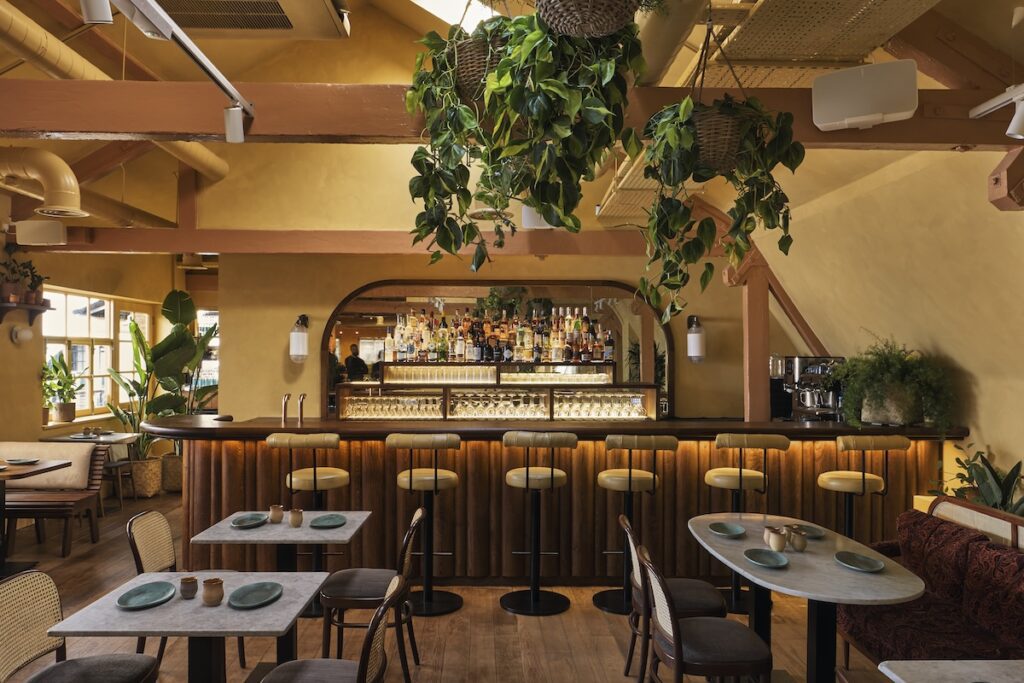 Asma, your restaurant Darjeeling Express specialises in Indian fine dining. What sets your menu apart?
Asma, your restaurant Darjeeling Express specialises in Indian fine dining. What sets your menu apart?
I think that we celebrate the food that people eat at home in India, at least where I grew up. And it’s a celebration of the female energy that is linked to food in our part of the world. In every home you go to across the entire subcontinent, it is always a woman who’s cooking or a matriarch is in charge of organising the food. But when it comes to restaurants in India, even at a middle level, it’s all men who are powerful. So my restaurant really is — I wouldn’t even call it fine dining — it is a very traditional celebration of the food in my home plus street food, because I think that our street food is incredible. It is celebrating the food of my culture.
How would you describe your style as a chef? What do you want your guests to experience?
I think what I want them to feel is this sense of understanding of who my people are and where I’m coming from. The easiest thing for a lot of people to do is to take our food, but there’s no understanding of the layers, the complexity, the honour and respect of food in our culture. That’s what I want: for people to understand when they eat that this is our sacred food made by women who are annapurna. They are these goddesses of constantly giving.
None of us remember going into a house in our part of the world and leaving without having eaten something or drunk something. Guests are seen as someone really important and I want the restaurant to give that feeling to someone that they are important. I try to serve every table. I try to talk to everyone. And I feel a sense of pride and honour and privilege in doing this.
Related: Renais co-founder Alex Watson talks fine gin brand and working with his sister Emma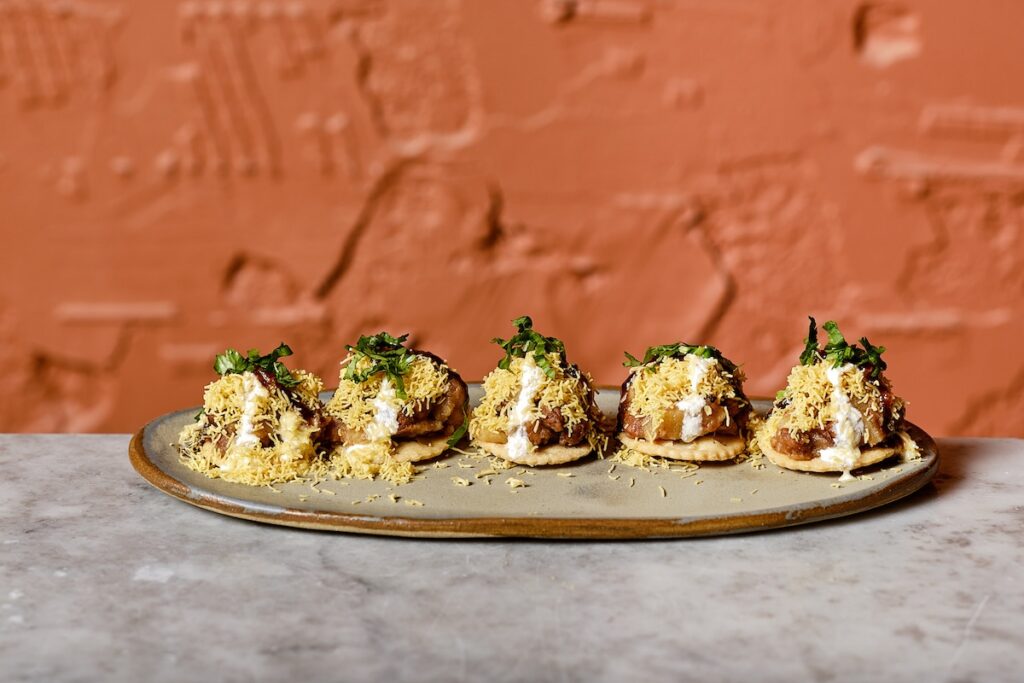 Darjeeling express has been a London institution for so many years — how has the perception of Indian food in London changed in that time?
Darjeeling express has been a London institution for so many years — how has the perception of Indian food in London changed in that time?
I think there’s definitely been a change but nowhere near like what I would want. But I absolutely am grateful for the fact that people now do understand because of travel and social media that our depth of cuisine is absolutely mind blowing. There’s more knowledge available because you can read stuff and that’s really good because people are digging deeper into things and presenting our food in a much more nuanced way. And I think that’s making a big difference. I’m also really grateful for a younger generation of writers who are actually taking the time and trouble to present our food in a different way.
Your work in philanthropy is well known. What drove you to being a voice for social change through food?
When it comes to food, somehow western food is seen as elevated. People will pay a lot for French and Italian food. It is seen as sophisticated. Somehow our food is meant to be cheap and cheerful. It’s disrespectful because our food culture is so ancient. It goes back all the way to Mohenjo-ddaro. There’s always been a sophisticated cooking culture in this land and we have never been able to communicate this because people look down on our food as cheap and cheerful and not elevated or sophisticated.
So for me, this is very political. I am running a restaurant but this is also a battle cry for justice for people to understand, especially at this moment when people of colour are under threat now more than ever. So many children I know get bullied in school for the way their food smells. And this happens even to grown ups. And I just want everyone to know that you cannot sit on my table and take my food if you do not respect me and everyone who looks like me. I will always speak up because I know I have a platform and I will use it.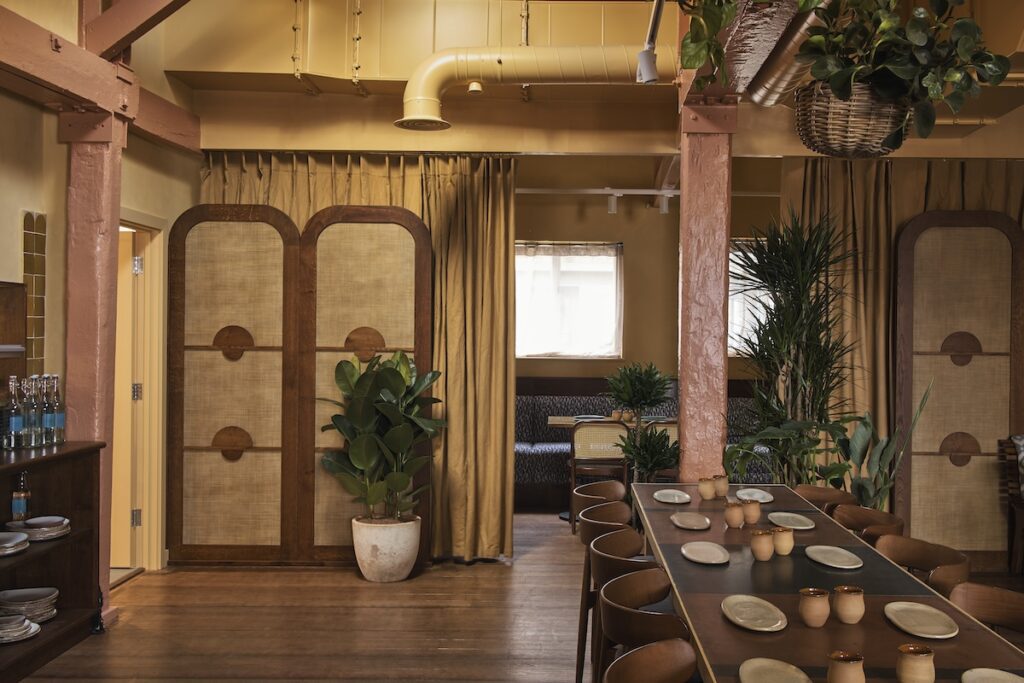 You have dedicated basically your entire life to breaking the stigma surrounding daughters in India. Can you talk about that?
You have dedicated basically your entire life to breaking the stigma surrounding daughters in India. Can you talk about that?
I was the second daughter and it’s not that anyone sat me down and said ‘Oh, everyone was so disappointed [you were a girl child].’ But I always knew that I was not the one that everyone wanted. My mother always denied it but too many unconnected people were saying the same thing, so I put it together. What saved me is that after the initial disappointment, my mother loved me so much. And when my brother was born, there was no celebration. We were all treated equally. But so many daughters, especially second daughters, are made to feel unwanted.
And it can either destroy you or it can make you invincible. It gives you that power to then go out to kick ass and prove to the world how great you are. And it’s so unfair because the people who are meant to look after you and love you, hurt you because of your gender. It happens every day and this is why I speak up. Because I want someone to step back and think, ‘Am I doing this to my niece? Am I doing this to my granddaughter?’ But also for that young girl to realise that this is unfair. They are choosing to discriminate against me. It’s a very important realisation.
What is your ultimate comfort food? What do you make for yourself at home after a long, gruelling day or week at your restaurant?
(Laughs) I take the dough from the restaurant and I make paratha. I love egg roll. I take the paratha and add egg, onions and salt. Then — and I know this is very bad — I sprinkle sugar on the paratha and the sugar melts. I put jam and also I’ve been making the Hyderabadi Mirchi ka Salan (a chilli based dish) in the restaurant, so I add that. Any leftovers, even cold dal, I roll it in the paratha. My comfort food is paratha. If you wake me up in the middle of the night and ask if I want to have paratha, the answer is yes. I think there’s something so healing about it. It’s hot, it’s crisp, the inside is soft and also it feels very cathartic to make the paratha. It’s a whole process and it’s a complete meal even if you don’t have anything else with it.
Related: Tempus’s Summer Edition stars Gladiator II director Ridley Scott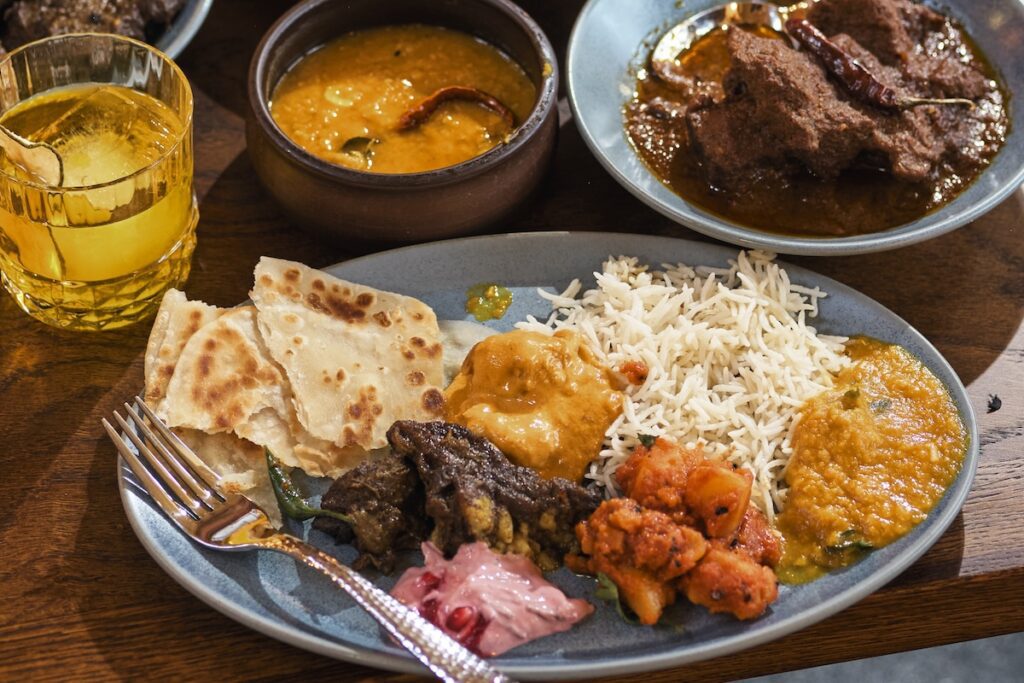 Why is this a comfort food to you? Do you have any special memories associated with the dish?
Why is this a comfort food to you? Do you have any special memories associated with the dish?
On weekends, our big family always had paratha and we all had to wait our turn. So I used to sit and wait because the kids got served last and the boys were served before me. So I have these memories of being very young sitting on the floor outside the kitchen waiting for my turn to get a paratha. I used to hold the paratha and separate each layer out. So it was that joy of not going to school, because it was summer vacation and my cousins were always there. So it is the feeling of being with family and then having this paratha, on your own, undisturbed. Because there were so many people in the house and we never got a seat at the table, we always ended up sitting on the floor. So it is an emotional thing for me. In fact, paratha is the trigger for where I am today. That is what kick started my journey to learn how to cook. And this is where it’s got me.
How has your upbringing influenced your cooking?
Everything I cook is what I eat at home. All the recipes are my Ammu’s — my mother’s. I mean, my last cookbook was called Ammu. It was all the recipes my mother had taught me. There is an emotional bond all of us have with food. It’s not about how a dish is made, it’s unspoken. It is the memory associated with the food you’re eating. You feel it. There is this incredible aura about our food, which is not spoken about because all our grandmothers and our mothers and aunts made it look effortless. Have you heard a single woman making a song and dance of the food? Because they make it look effortless for too many people. This is how food is meant to be cooked: with women laughing, people singing…there is peace. This is our food, this is our culture. That’s why my kitchen in the restaurant is open. So people can see women singing as they cook.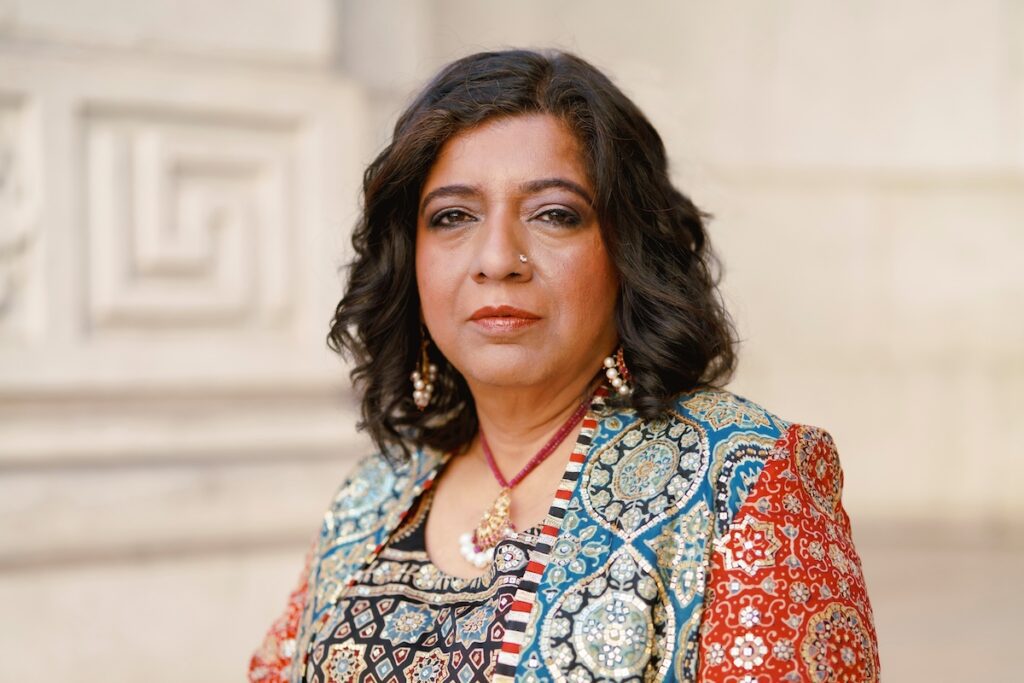 As a woman in the culinary industry, what are some of the challenges — if any — that you have faced in your career?
As a woman in the culinary industry, what are some of the challenges — if any — that you have faced in your career?
I have faced a lot of challenges. There is a lot of bias. I’ve often been asked, ‘Who’s your business advisor? Do you have a business partner? Do you have venture capitalist money?’ They’re basically asking me who the suit in my life is. This is absolutely blatantly openly done in the east, but in the west, it is more subtly done.
I have struggled to find places to rent for my restaurant. Not one landlord showed me a place. They kept saying it’s not suitable. But it wasn’t a place that was not suitable, I was not suitable for them. And when the pandemic happened and all these places started closing, those same landlords started chasing me saying they’ll give me anything I want. And I spoke to one of them and said, ‘Now the chess board is clear. The pandemic has cleared the board. Now I come back as queen. I will take a huge grade two listed place. I want to take the biggest building in Covent Garden and you will give it to me.’ And they did.
So being a woman, it’s been tough, but I have fought it completely at every level. And I think I’ve been able to do things that were important for me. And there are days when things are very bad and I’ve struggled. But there are enough days that I feel victorious and I can live to fight another day.
Finally, you were named one of TIME Magazine’s 100 most influential people for 2024. How does that feel?
I was very shocked when I found out because they just drafted this email saying, ‘Don’t tell anybody, but in two weeks time, there is a gala, please come.’ How I really feel is that it’s a recognition of South Asian women of a certain age. I felt when I went there at the gala that I represented every woman who has put others before herself. All the women who have set fire to themselves to warm others.
I feel that this accolade is a recognition for all women of my culture. All the women who have cooked and served selflessly. And [Indian fashion designer] Sandeep Khosla made me this outfit with panels that were stitched together to represent different women, and it was dyed with pomegranate and all natural dyes. And when I wore that coat, I was weeping. I felt I was carrying all the dreams and all the hopes of other women. I felt I represented everyone who never got a chance to go on stage. It was really overwhelming but I am very excited to be in it.
To know more about Chef’s Table and Asma Khan’s cooking heroes, subscribe to our weekly newsletter, the Tempus Edit, here. And read other interviews in our Chef’s Table series here.







